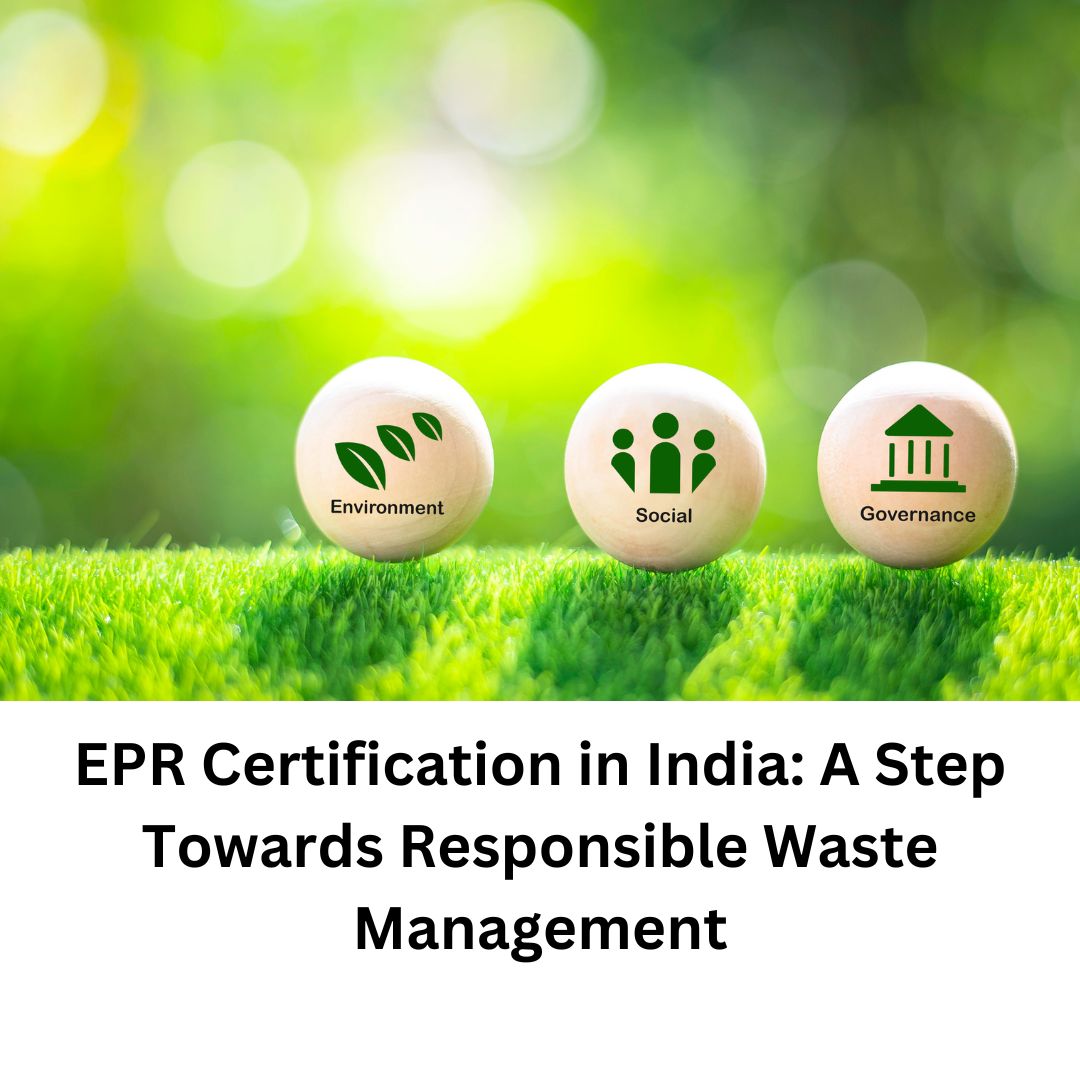Blog Details

EPR Certification in India: A Step Towards Responsible Waste Management
In today’s world, where environmental concerns are rapidly growing, the concept of Extended Producer Responsibility (EPR) plays a crucial role in sustainable development. EPR certification, issued by the Central Pollution Control Board (CPCB) in India, ensures that manufacturers, brand owners, and importers take accountability for the end-of-life management of their products. This includes the collection, recycling, and safe disposal of items such as plastic packaging, electronic waste (e-waste), batteries, and other non-biodegradable materials.
What is EPR Certification?
EPR Certification is a government-issued license that makes it mandatory for producers, importers, and brand owners to manage the waste generated from their products. The idea is simple yet impactful—those who introduce products into the market are also responsible for ensuring that these products do not harm the environment once their usefulness ends.
For instance, electronic items like mobile phones, computers, and household appliances eventually become e-waste. Similarly, plastic packaging from FMCG products creates tons of plastic waste. Through EPR, companies must create a proper system to collect, recycle, and dispose of this waste in an environmentally sound manner.
Why is EPR Certification Important?
- → Legal Compliance: EPR certification ensures compliance with the Waste Management Rules introduced by the Indian government. Non-compliance can lead to penalties, business restrictions, or legal actions.
- → Environmental Protection: It reduces the burden of waste on landfills, promotes recycling, and prevents hazardous environmental impacts.
- → Corporate Responsibility: Companies adopting EPR show commitment to sustainability, strengthening their brand image among eco-conscious consumers.
- → Circular Economy: By promoting recycling and reuse, EPR helps create a circular economy where resources are efficiently utilized rather than wasted.
Who Needs EPR Certification?
- → Producers and Manufacturers: Those manufacturing electronic goods, plastic packaging, or similar items.
- → Importers: Companies importing plastic, electrical goods, or packaged items into India.
- → Brand Owners: Businesses that sell products under their own brand name, even if manufactured by others.
All these entities must obtain EPR authorization from CPCB before operating legally in India.
Benefits of EPR Certification
- → Improved Sustainability Practices: Encourages businesses to adopt eco-friendly packaging and production methods.
- → Enhanced Market Credibility: Certified companies are viewed as environmentally responsible, gaining consumer trust.
- → Reduced Pollution: Ensures waste is recycled instead of dumped into the environment.
- → Global Acceptance: Many international markets prefer businesses that comply with EPR, boosting export opportunities.
The Role of CPCB in EPR Certification
The Central Pollution Control Board (CPCB) is the governing authority responsible for issuing EPR certificates in India. It evaluates applications, monitors compliance, and ensures that businesses are following waste management guidelines. Companies are often required to submit periodic reports proving their adherence to EPR obligations.
Conclusion
EPR certification is not just a legal requirement but a commitment to sustainable growth. By ensuring that products such as plastic packaging and electrical equipment are responsibly managed after their use, businesses can significantly reduce their environmental impact.
For companies, obtaining EPR certification means more than compliance—it is an opportunity to contribute to environmental protection, align with global sustainability standards, and build long-term trust with customers.
In a time when environmental awareness is at its peak, EPR certification stands as a powerful step toward responsible production, waste management, and a greener future.
Leave a Comment
We would love to hear your thoughts! Please leave your comment below:
